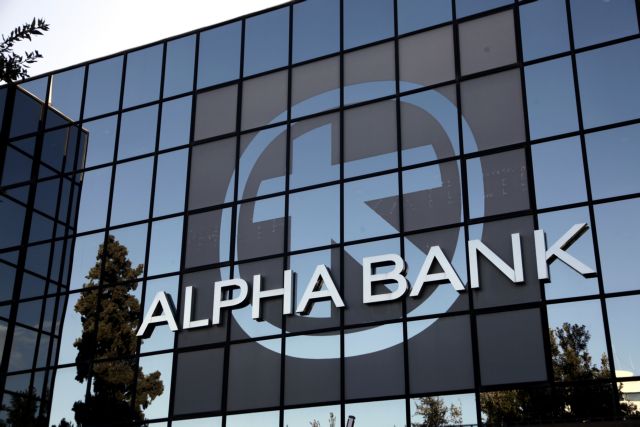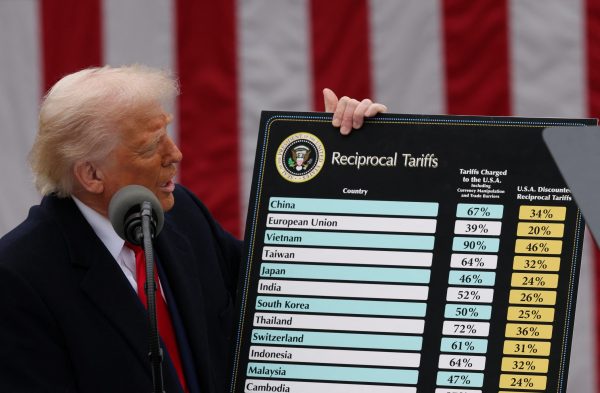
Alpha Bank refers to the inflationary pressures that the Greek economy is under in a recent study, while it tries to give an answer to whether the return of inflation is a temporary phenomenon.
According to the latest available ELSTAT data, the Harmonized Index of Consumer Prices (HICP) continued to grow on an annual basis for the third consecutive month. In particular, HICP inflation in August stood at 1.2%, up from 0.7% in July and 0.6% in June, with inflation based on the National Consumer Price Index reaching 1.9% in August.
Inflationary pressures are particularly visible in the prices of energy and in particular in oil and gas, as well as in the prices of commodities, raw materials and foodstuffs. The key question is whether the return of inflation is a temporary phenomenon due to the faster adjustment of demand than supply to a post-pandemic regularity, or a structural change with more permanent characteristics associated with the expansionary fiscal and monetary policy pursued on an international level.
As observed, during the pandemic, ie from March 2020 onwards, deflationary pressures were created in the country that came primarily from the negative contribution of prices for services and secondarily from the negative contribution of energy prices. This is due to the imposition of restrictive measures and therefore to the sharp decline in demand for services – most of which are based on social interaction – but also to movements that have led to lower energy prices.
From March this year, however, energy prices are following an upward trend, primarily as a result of base effects, creating inflationary pressures. Specifically, according to the latest available data, energy prices (+0.95 percentage points) contributed significantly to the increase in the price level in August, followed by prices for unprocessed and processed foods which contributed positively by 0 , 57 and 0.15 percentage points, respectively.
It is worth noting that food, processed and unprocessed, contributes positively to the rise in the price level in the last quarter. On the contrary, the contribution of industrial products (excluding energy) was negative in August (-0.26 percentage points), but also of services (-0.20 percentage points). In addition, according to the latest available data from the European Commission, consumer expectations for price trends in the next 12 months returned to positive ground for the first time since April 2020 (2.4 points), reaching, in August 2021 , 5.8 points, discounting strong inflationary pressures for the coming months.
The sharp rise in inflation
The sharp rise in inflation is a global phenomenon, which stems from the imbalance between supply and demand, resulting in the formation of excessive demand conditions at this stage. Despite the significant differences in the level of inflation between countries, which is mainly related to the speed of recovery of each economy from the pandemic crisis, there are factors that affect the global economy as a whole, exerting inflationary pressures. In summary, these factors are:
First, the sharp rise in energy prices, especially oil and gas. Restrictions on travel and global industrial activity in 2020 due to lockdown measures have resulted not only in a sharp decline in global travel traffic but also in a large reduction in oil and gas demand and consequently of their prices. The gradual normalization of economic activity in the current year, however, has led to an increase in demand, which fuels the rise in prices. It is noteworthy that, since the beginning of the year, the prices of Brent crude oil and natural gas have increased by 45% and 101% respectively (data until 17.09.2021), moving higher than the pre-pandemic crisis levels of January 2020.
Greece, as a net importer of oil and gas and a country with a significantly higher rate of energy dependence (74.1%, in 2019) compared to the European average (60.7%, in 2019), is burdened by rising prices as, inter alia, the trade deficit increases. In addition, the weakening of the euro against the dollar by 4% since the beginning of the year (data until 17.09.2021) has had an additional increasing effect on the energy costs of oil and gas, which are expressed in dollars. It is worth noting that, according to the latest data of ELSTAT, in July, the Import Price Index in the energy sector increased by 61.5% on an annual basis. Energy prices have risen sharply on an annual basis since April, dragging down harmonized inflation, while excluding energy prices returned to marginally positive ground after 14 months (+ 0.3% on an annual basis). basis, in August.
Secondly, the disruptions in the global supply chains. The recovery in global processing, from the second half of 2020, has resulted in increased demand for intermediate goods. It is noteworthy that, according to the World Trade Organization (“Information note on trade in intermediate goods: first quarter 2021”), China increased its exports of intermediate goods by 41% on an annual basis in the first quarter of 2021. However, the difficulties pandemic-related problems do not allow maritime freight to function properly, resulting in delays in container shipments. This results in a vertical increase in transport costs. Part of this increase is passed on to commodity and raw material prices and ultimately to final product prices. Indicatively, it is reported that the prices of wheat and cotton are increasing from the middle of the previous year, having exceeded the pre-pandemic levels . It is pointed out that the prices of some goods are further burdened, due to the existence of natural phenomena (eg heat, drought) which are attributed to climate change and result in their reduced production.
In Greece, the Import Price Index2 on intermediate goods increased by 7.8% on an annual basis in July, recording a steady upward trend since the beginning of the year. The increase in commodity prices started in April, to reach 3.1% on an annual basis, in August. On the contrary, the prices of services record a negative annual rate of change from June 2020.
In conclusion, inflationary pressures intensified due to (i) the rapid increase in demand for goods and services following the lifting of restrictive measures to stem the pandemic (demand inflation) and (ii) the increase in production costs as a result of malfunctions observed in supply chains, resulting in supply-side disruptions (cost inflation). The mismatch between increased demand and supply constraints creates excessive demand for goods and services, with the result that prices show an upward trend. The prevailing view among economic policy makers (ECB staff macroeconomic projections for the euro area, September 2021) is that rising inflation is a temporary phenomenon. However, the possibility of the disturbances lingering longer than expected cannot be ignored, which would force some companies to reduce their production, further increasing inflation costs, a development that would undermine the growth process.
Latest News

Trump Tariffs Jeopardize Growth: Piraeus Chamber of Commerce
The tariffs, aimed at reducing the U.S. trade deficit, are expected to have both direct and indirect effects on the European economy

EU Condemns Trump Tariffs, Prepares to Retaliate
As tensions escalate, the EU is expected to continue negotiations with Washington while preparing for potential economic retaliation.

The Likely Impact of Trump Tariffs on Europe and Greece
Trump tariffs are expected to negatively affect economic growth in the Eurozone while Greece's exports could take a hit.

Motor Oil Results for 2024: Adjusted EBITDA of 995 mln€; Proposed Dividend of 1.4€ Per Share
Adjusted EBITDA for 2024 was down 33% yoy. The adjusted profit after tax for 2024 stood at 504 million euros, a 43% decrease from the previous year

Cost of Living: Why Greece’s 3% Inflation Is Raising Alarm
Greece appears to be in a more difficult position when it comes to price hikes, just as we enter the era of Trump’s tariffs.

Fitch Ratings Upgrades the Four Greek Systemic Banks
NBG’s upgrade reflects the bank’s ongoing improvements in its credit profile, Fitch notes in its report, including strong profitability, a reduction in non-performing exposures (NPEs), and lower credit losses

Trump to Announce Sweeping New Tariffs Wednesday, Global Retaliation Expected
With Trump's announcement just hours away, markets, businesses, and foreign governments are bracing for the fallout of one of the most aggressive shifts in U.S. trade policy in decades.

Inflation in Greece at 3.1% in March, Eurostat Reports
Average inflation in the eurozone settled at 2.2%, compared to 2.3% in February

Greece’s Unemployment Rate Drops to 8.6% in February
Despite the overall decline, unemployment remains higher among women and young people.

Jerry Kalogiratos Highlights Key Role of Energy Transition and Data Demand in LNG Outlook
Energy transition and the prospects of LNG were discussed at Capital Link’s 19th Annual International Maritime Forum, during a panel discussion with Jerry Kalogiratos (Capital Clean Energy Carriers Corp.)
























![ΕΛΣΤΑΤ: Αυξήθηκε η οικοδομική δραστηριότητα κατά 15,6% το Δεκέμβριο [πίνακες]](https://www.ot.gr/wp-content/uploads/2025/03/DSC9655-2-1024x569-1-90x90.jpg)

















 Αριθμός Πιστοποίησης
Αριθμός Πιστοποίησης